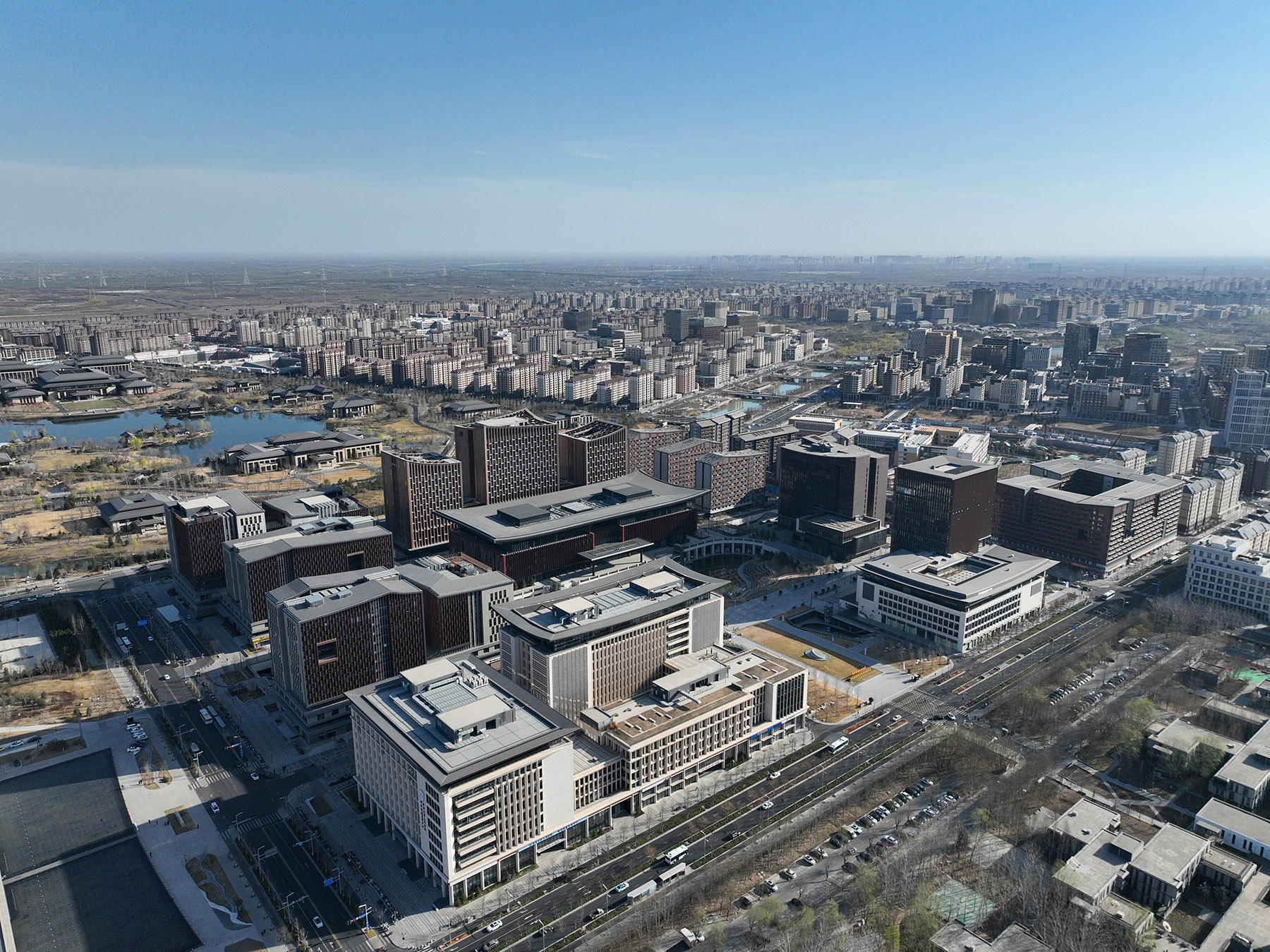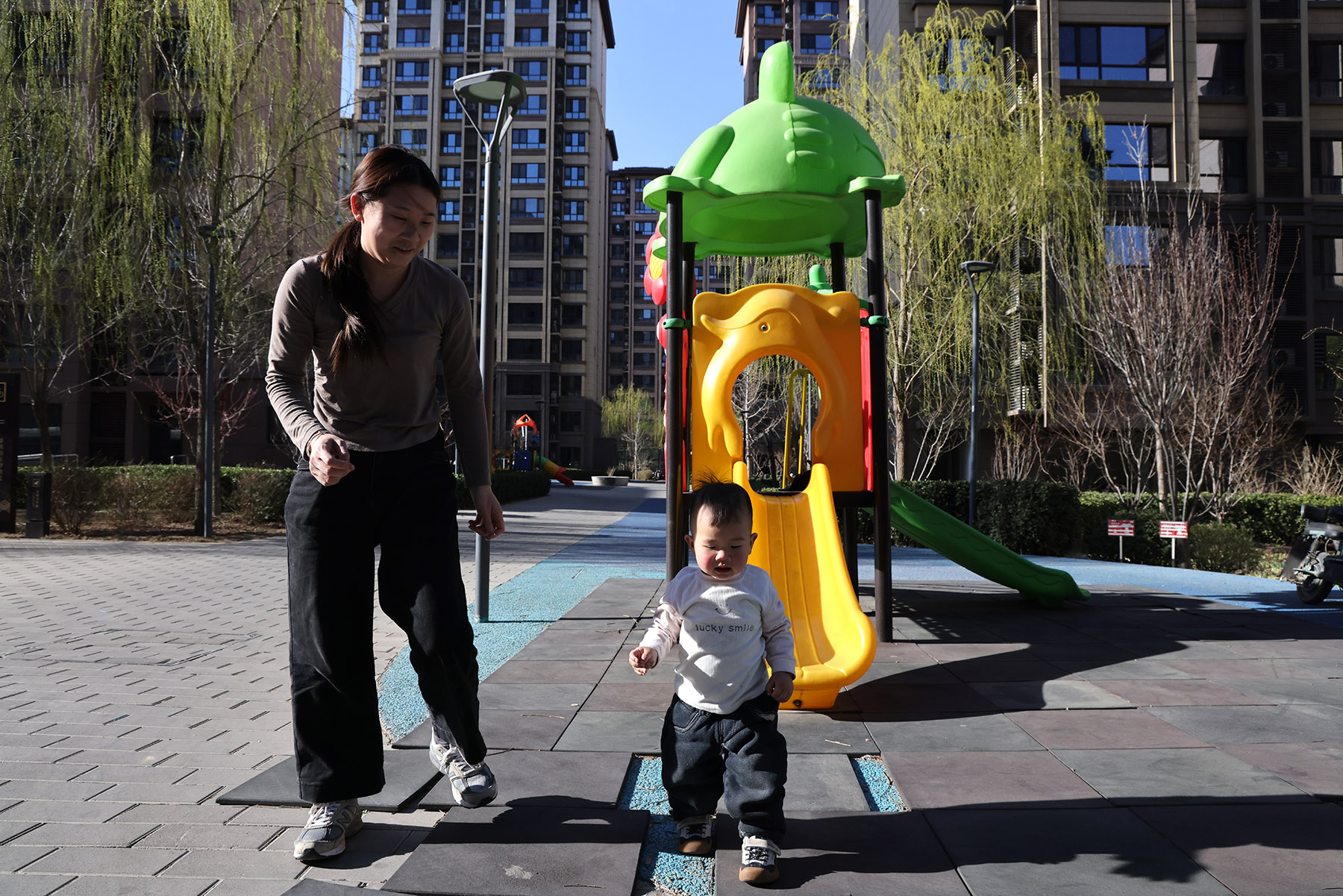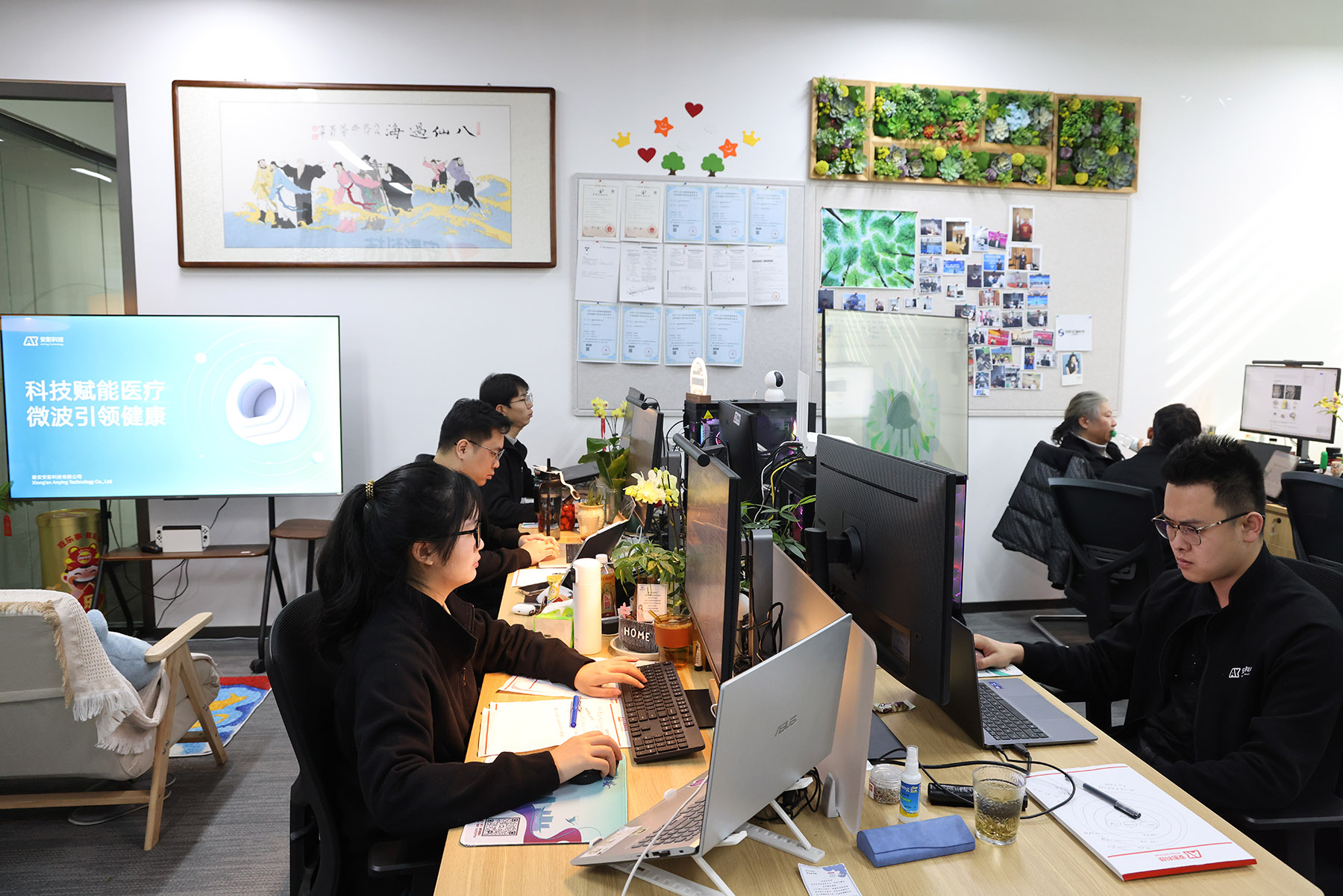Eight years on, new area continues to attract talent, high-tech enterprises

Editor's note: In April 2017, China's central authorities announced the establishment of Xiong'an New Area in Hebei province. Over the past eight years, Xiong'an has played an important role as an engine for regional development by absorbing Beijing's noncapital functions and promoting innovation.
Chen Hongsheng, a 42-year-old researcher, has spent the past year building a new life in Xiong'an New Area — a rising innovation hub in Hebei province, 100 kilometers southwest of Beijing.
Relocated from the capital under a national initiative to decentralize noncapital functions, Chen is part of a wave of professionals drawn by the area's opportunities, cutting-edge industries and high-quality urban living environment.
After working and living in the emerging city for over a year, Chen is trying to persuade his wife to join him in Xiong'an New Area. He enjoys a comfortable lifestyle there and is working hard to afford the couple's dream apartment.
READ MORE: China begins to build major germplasm bank for forestry, grassland conservation
Chen is typical of the new residents in Xiong'an, which was established eight years ago as a pilot project to help address the capital's big city issues.
Designated as a centralized relocation area for the non-capital functions of Beijing — mainly universities, research institutes, medical institutions, corporate headquarters, financial institutions, and public institutions — Xiong'an is promoting the smooth migration of these sectors and enhancing its ability to attract them through "internal driving forces".

Wonderful scenes
As an employee of China Datang Technology Innovation Co — a participant in the relocation process, Chen's experiences and feelings about the shift illustrate how these internal driving forces are becoming more robust.
"I came to Xiong'an for the first time in January 2024. Initially, it felt quite sparse and quiet here. But throughout the year, many work units gradually moved in, making the area livelier," Chen said, adding that amenities are close by, and shopping and entertainment facilities are well-equipped, making daily life very convenient.
The local government in Xiong'an has issued him a Talent Card B, which offers many public service conveniences. The card also provides a monthly housing subsidy for employees who have relocated to the new area.
"The conditions for entrepreneurship and living, as well as benefits for relocated personnel, are not lower than when they stayed in Beijing," Zhang Guohua, Party secretary of Xiong'an New Area, said in an interview with China Daily in early March.
According to the committee, the new area's housing provident fund standards, which provide funding support for individuals to buy houses, are aligned with Beijing's policies.
And a one-card pass for social security in Beijing and Xiong'an enables intercity mutual recognition for use of public transport, medical treatment, and medicine purchases.
"Working and living in Xiong'an also allows you to experience the wonderful scenes of no traffic congestion, mini football fields, tree-lined parking lots, and a paradise for migratory birds," Ni Yuefeng, secretary of the Hebei Provincial Committee of the Communist Party of China, said during the two sessions in March.
These efforts align with directives from China's central authorities, who have prioritized Xiong'an's development as a millennial plan of national significance.
Policies related to children's education, healthcare, housing, compensation, social security, medical insurance, and the housing provident fund for relocated personnel should be further refined and implemented, in order to ensure that both relocated work units and personnel enjoy tangible benefits.

Opportunities plentiful
Initial success in alleviating Beijing's noncapital functions can be seen already, with landmark resettlement projects happening one after another.
Central State-owned enterprises, including China Satellite Network Group Co, China Huaneng Group Co, Sinochem Holdings Co, and China Mineral Resources Group Co, have either fully moved to the new area or are speeding up construction and renovations of office buildings.
Beyond State-led relocations, market-driven projects are also gaining momentum, such as the China Telecom Smart City Industrial Park, a complex that integrates research and development offices, technology services, operational management, and lifestyle amenities.
In 2024, a total of 47 new central enterprises' secondary and tertiary subsidiaries and more than 300 various central enterprise branches based themselves in the new area, according to local government statistics, forming a favorable situation for the continuous advancement of resettlement.
These transferred subsidiaries and branches, whether listed for relocation or market-driven, are rapidly multiplying in Xiong'an. And their employees, far from being marginalized, have instead found new work and research opportunities.
As a researcher in new energy-storage technologies, Chen is pleased that the new area can facilitate research-centered companies, like his, development of large laboratories.
"Having a lab is crucial for us. While in Beijing, we had been expecting a lab, it seemed challenging," Chen said.
READ MORE: Xiong'an New Area becoming mecca for AI enterprises
But in the first year in Xiong'an, his company has already started construction of a 2,000-square-meter lab in Zangang, a pilot base planned by the new area's government.
"We researchers are looking forward to it," he said.
Despite Xiong'an's appeal, Chen faces personal challenges.
"My wife has a stable career in Beijing, so it's not easy for her to decide changing her job. Meanwhile, her parents who have lived with us for years to help take care of the child, are used to life in Beijing, including the neighborhood and their friends," he said.
Chen, who has lived in the capital for almost 20 years and plans to gradually relocate his whole family to Xiong'an, said "I have to take it slowly".
"I'm working hard to buy an apartment, and it makes me anxious when properties are quickly snapped up by others," Chen said, adding that the new area's urban planning and modern design concepts make him feel comfortable and offer inspiration.
According to Chen, the housing in the new area is in high demand as more people are moving there because of the city's appeal. "It seems that everyone is very optimistic about the city's development," he said.

Attracting talent
His feelings about Xiong'an attractions are shared by other talents moving there.
Zhang Zequn, a PhD candidate jointly supervised by the University of Science and Technology of China in Hefei, Anhui province and Eastern Institute of Technology in Ningbo, Zhejiang province, came to Xiong'an in August 2024.
As a talent, he represents a major new type of cohort in Xiong'an. "In July last year, I visited Xiong'an for the first time to evaluate its ecosystem and support for emerging industries, which turned out to be very encouraging," Zhang said, adding that he and his peers immediately decided to create a company there.
According to Zhang, the area has strong policy backing, with targeted incentives for cutting-edge sectors aligned with his startup's vision.
Though he is only 26 years old, Zhang co-founded Xiong'an Anying Technology Co with his peers, serving as a chief technology officer. The company contributes to the advancement of medical AI solutions.
"The four of us unanimously chose Xiong'an, a new city full of opportunities, to incubate our cutting-edge products," Zhang said. The company's chairman Zhou Haoran, 27, is from Tsinghua University, while the other two founders are a returnee from Australia and a graduate from Chongqing.
The team is developing and promoting a portable cerebral hemorrhage detection and analysis device aimed at addressing urgent brain medical needs such as strokes, by providing rapid qualitative screening and real-time intracranial bleeding monitoring, Zhang said.
"This empowers medical institutions to provide brain imaging at patients' sides promptly, reducing the time from symptom onset to treatment or intervention," Zhang said, adding that the device is expected to launch by the end the year after completing clinical trials.
"Xiong'an itself is a dream, and a place where we young people can realize our dreams like this," he said.

Ni Yuefeng, the provincial Party secretary, said that more than 170 academicians, over 1,000 entrepreneurs from Beijing's Zhongguancun Science Park, and more than 50,000 college students have visited Xiong'an to evaluate what it has to offer. "After experiencing the modern vibe of Xiong'an, more and more innovative talents are voting with their feet for the new area," Ni said.
A large number of talented people in their fields have chosen Xiong'an and, like Zhang, have settled in the area to pursue their dreams, according to the administrative committee of Xiong'an.
With the attraction of talent, Xiong'an is focused on becoming an innovation hub and entrepreneurship hot spot of the new era. "A series of high-level innovation platforms have been established to cover all stages from research and development to commercialization," said Zhang Guohua, top official of the new area.
According to Zhang, Xiong'an has integrated into Beijing's high-level talent hub, attracted leading enterprises, key figures, and innovation teams, established an alliance for relocated universities, set up a special fund for talent, and implemented the Sixteen Xiong Talents Policies.
ALSO READ: A model of innovation for cities
Among the 16 policies is a measure to attract top global talent for key development industries such as new-generation information technology, modern life sciences and biotechnology, new materials, aerospace information, green energy, and fintech. To work in Xiong'an, top scientists will be offered with 20 to 50 million yuan in research funding and 3 million yuan in living allowances, plus spacious accommodations of no less than 200 square meters.
"Such benefits are unmatched by other cities," Zhang Zequn, the PhD candidate, said.
While various policies are offered to attract new talent to Xiong'an, the original residents of the area, which covers Anxin, Rongcheng and Xiongxian counties, have not been forgotten.
According to Zhang Guohua, more than 100,000 local people are gradually transitioning from rural to urban life.
"We are creating a city that's friendly for people of all ages, constructing a series of wonderful city scenes, building 15-minute living circles, and making a high-quality living environment a distinct feature of Xiong'an," he said.
With its dual focus on innovation and livability, Xiong'an is poised to redefine urban development in China.


